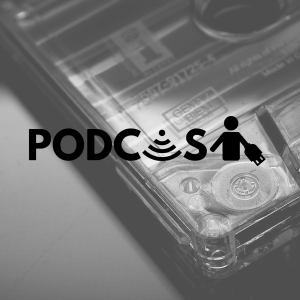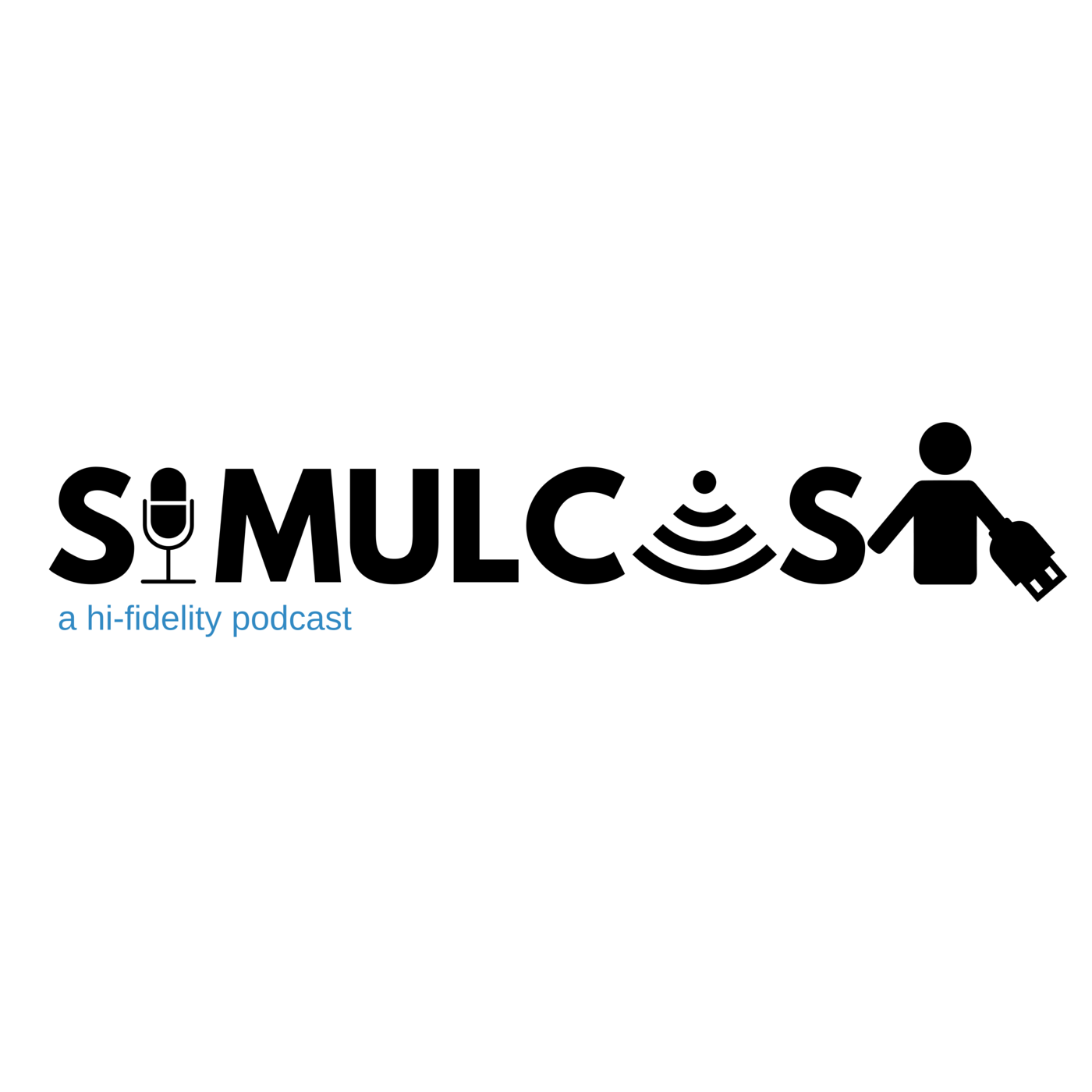Episodes

Wednesday May 29, 2019
78 - Advances in Simulation: Transmitting Culture Through Simulation
Wednesday May 29, 2019
Wednesday May 29, 2019
In this, another joint feature with Advances in Simulation journal, we explore three main ideas:
- Why does simulation have such a symbiosis with culture?
- How to we understand more about this relationship? ie. there is nothing so practical as a good theory.
- What does can this teach us about targeting culture as a translational objective in a sim program?
To answer these questions we stir in the ingredients of a thriving simulation program/service at Gold Coast University Hospital, two pieces of academic work from our guests, and some personal reflection along the way. The guests for this episode are Simulcast partner in crime, Victoria Brazil, and the very clever, Canadian Emergency Doc, Anthropologist, author and adventurer on temporary loan to Australia, Eve Purdy.
The publications of interest are:
Brazil, V., E. Purdy, C. Alexander and J. Matulich (2019). "Improving the relational aspects of trauma care through translational simulation." Advances in Simulation 4(1): 10. https://advancesinsimulation.biomedcentral.com/articles/10.1186/s41077-019-0100-2
Purdy, E., C. Alexander, M. Caughley, S. Bassett and V. Brazil (2019). "Identifying and Transmitting the Culture of Emergency Medicine Through Simulation." AEM Education and Training 3(2): 118-128. https://onlinelibrary.wiley.com/doi/full/10.1002/aet2.10325
Eve refers to a pivotal moment back in 2014, being in the audience for this talk by Victoria.

Tuesday May 14, 2019
77 - Simulcast Journal Club Podcast Monthly Wrap April 2019
Tuesday May 14, 2019
Tuesday May 14, 2019
Ben and Vic discuss the paper of the month, including expert commentary from Stuart Rose.
Hollingsworth, C., Wesley, C., Huckridge, J., Finn, G. and Griksaitis, M. (2017). Impact of child death on paediatric trainees. Archives of Disease in Childhood, 103(1), pp.14-18.
And we talked about a few other sim papers across a range of topics and research methods,
Goldshtein D, Krensky C, Doshi S, et al In situ simulation and its effects on patient outcomes: a systematic review BMJ Simulation and Technology Enhanced Learning Published Online First: 05 April 2019. doi: 10.1136/bmjstel-2018-000387
Petrosoniak A, Almeida R, Pozzobon LD, et al. Tracking workflow during high-stakes resuscitation: the application of a novel clinician movement tracing tool during in situ trauma simulation. BMJ STEL. 2019;5:78–84. (Open Access)
Ann L. Butt, Suzan Kardong-Edgren, Anthony Ellertson. Using Game-Based Virtual Reality with Haptics for Skill Acquisition, Clinical Simulation in Nursing, Volume 16, 2018, Pages 25-32,
And Ben introduced the paper for June.
Eve Purdy, Charlotte Alexander, Melissah Caughley, Shane Bassett, Victoria Brazil. Identifying and Transmitting the Culture of Emergency Medicine Through Simulation. AEM Education and Training 2019; 3: 118– 128 (Open access)
So we’ll be back at the end of June with our wrap – join the discussion at simulationpodcast.com
Victoria

Friday May 03, 2019
76 - Advances in Simulation - Words Matter
Friday May 03, 2019
Friday May 03, 2019
‘Non-technical skill’ is not a great term for the range of skills and behaviours we expect of our healthcare professionals. It also belies a not so subtle hierarchy of skills where ‘hard’, technical, ‘medical expertise’ are afforded primacy, sometimes to the detriment of our patient care.
Our latest collaborative podcast with Advances in Simulation features an editorial - Words matter: towards a new lexicon for ‘nontechnical skills’ training by Paul Murphy, Debra Nestel and Gerry Gormley.
In this podcast I was joined by Paul Murphy from Queens University Belfast, the lead author of the article, as well as Pamela Andreatta, who was part of a group who authored a similarly themed article in 2011.
We discussed words, culture, drama, impression management and values in health professional education and simulation.
vb

Friday Apr 26, 2019
75 - Advances in Simulation: Another Debriefing Course! Who Benefits?
Friday Apr 26, 2019
Friday Apr 26, 2019
Another debriefing course! Who benefits?
Kristian Krogh, Albert Chan, and Nancy McNaughton
Many health professional educators attend courses on simulation debriefing, but do they actually perform better as simulation debriefers as a result?
Writing in Advances in Simulation, Kristian Krogh (@DrKrogh), Albert Chan (@gaseousXchange) and Nancy McNaughton (@uto_nancy) provoke us to consider this issue in their commentary - Another debriefing course! Who benefits?
In this next instalment in our collaboration with Advances in Simulation, I spoke with Kristian and Nancy about the article. They suggest that high quality debriefing courses are not enough, and that we need to think more transfer to our local contexts, with a community of practice for peer feedback and support

Friday Apr 05, 2019
74 - Simulcast Journal Club Podcast Monthly Wrap March 2019
Friday Apr 05, 2019
Friday Apr 05, 2019
Ben and Vic discuss the paper of the month, including expert commentary from Jack Matulich.
Fraser, K., Meguerdichian, M., Haws, J., Grant, V., Bajaj, K., & Cheng, A. (2019). Cognitive Load Theory for debriefing simulations: implications for faculty development.
And we talked about a few other sim papers across a range of topics and research methods,
Turton, D. , Buchan, K. , Hall‐Jackson, M. and Pelletier, C. (2019), Simulation: the power of what hurts. Med Educ, 53: 326-328.
Chancey RJ1, Sampayo EM, Lemke DS, Doughty CB. Learners' Experiences During Rapid Cycle Deliberate Practice Simulations: A Qualitative Analysis. Simul Healthc. 2019 Feb;14(1):18-28
Chen HE1, Yovanoff MA, Pepley DF, Sonntag CC, Mirkin KA, Han DC, Moore JZ, Miller SR. Can Haptic Simulators Distinguish Expert Performance? A Case Study in Central Venous Catheterization in Surgical Education. Simul Healthc. 2019 Feb;14(1):35-42.
And Ben introduced the April paper
Hollingsworth, C., Wesley, C., Huckridge, J., Finn, G. and Griksaitis, M. (2017). Impact of child death on paediatric trainees. Archives of Disease in Childhood, 103(1), pp.14-18.
So we’ll be back at the end of April with our wrap – join the discussion at simulationpodcast.com
Victoria

Thursday Apr 04, 2019
Thursday Apr 04, 2019
Our final podcast from IMSH starts with a deep dive in to how simulation might help us ‘train’ more comprehensive leadership skills and behaviours – not just in the resus room, but rather in quality improvement and change management. @davidgrantsim , President of @SESAMSimulation , spoke to Vic on the topic.
Ben then turned our attention to followership and interviewed Jannet Lee-Jararam and Benjamin Berg from @SIMTIKI_HI in Honolulu.
We loved hearing from delegates at #IMSH2019 and @AmyZhengMD from @UCSDMedSchool kindly volunteered to be interviewed, and spoke about how IMSH had changed in the time she had been attending.
To wrap up – Ben and Vic reflect on their take home lessons from #IMSH2019. See you next year in California !

Tuesday Mar 05, 2019
72 - Simulcast Journal Club Podcast Monthly Wrap February 2019
Tuesday Mar 05, 2019
Tuesday Mar 05, 2019
Ben and Vic discuss the paper of the month, including expert commentary from Ann Mullen (@keepsimsafe)
Schroeder J, O'Neal C, Jagneaux T. “Practically Saline”. J Investig Med High Impact Case Rep. 2015;3(4):2324709615618980 PMID 26663812.
And we talked about a few other sim papers across a range of topics and research methods,
Bearman, M. , Greenhill, J. and Nestel, D. (2019), The power of simulation: a large‐scale narrative analysis of learners’ experiences. Med Educ. doi:10.1111/medu.13747
Gardner AK, Abdelfattah K Getting better all the time? Facilitating accurate team self-assessments through simulation BMJ Simulation and Technology Enhanced Learning Published Online First: 12 January 2019. doi: 10.1136/bmjstel-2018-000411
O’Shea CI, Schnieke-Kind C, Pugh D, et al The Meta-Debrief Club: an effective method for debriefing your debrief BMJ Simulation and Technology Enhanced Learning Published Online First: 02 February 2019. doi: 10.1136/bmjstel-2018-000419
(and check them out at @MetaDebriefClub)
And Ben introduced the March paper
Fraser, K., Meguerdichian, M., Haws, J., Grant, V., Bajaj, K., & Cheng, A. (2019). Cognitive Load Theory for debriefing simulations: implications for faculty development.
So we’ll be back at the end of March with our wrap – join the discussion at simulationpodcast.com

Monday Mar 04, 2019
Monday Mar 04, 2019
Our third podcast from IMSH starts with a focus on disruptive innovation, big data and artificial intelligence, based on the opening plenary by Joel Selanikio (@jselanikio) who also gave a TeD talk on the topic. Vic had a fan girl moment speaking to Ron Harden, living legend of medical education and General secretary of AMEE, abut his reactions to the talk.
We also spoke to Yue Dong (@dongyue), one of the conference organisers, for his reflections.
Ben finished the day with a chat with Suzie Kardong-Edgren (@SuzieEdgren) about Tag Team Patient Safety Simulation.

Monday Mar 04, 2019
Monday Mar 04, 2019
Our second podcast from #IMSH2019 features a deep dive on Rapid Cycle Deliberate Practice with Bram Welch-Horan (@DrBramPedsER ), and some reflections on the topic from Belinda Lowe (@Belinda_J_Lowe ), Bond University Simulation Fellow.
We then shifted focus to research and publishing in simulation with Michelle Kelly (@KellyKelmich ) summarising the session on ‘Articles of Influence’, and Sharon Muret-Wagstaff , one of the associate editors of Simulation in Healthcare, giving us some tips on how to be a peer reviewer.
Ben and Vic reflect on other parts of Day 2, especially the morning plenary by Sir Ken Robinson, who inspired us to think about creativity and learning. Join the 56 million people who have watched his TeD talk on the topic here. Play more!

Thursday Feb 14, 2019
Thursday Feb 14, 2019
In this special edition of Simulcast, we feature three articles on simulation applied to point of care ultrasound (POCUS). Vic visited the team at Thomas Jefferson University Hospital Ultrasound Division (@jeff_sono) in Philadelphia, led by Dr Resa E. Lewiss (@ultrasoundREL)

Resa chose 3 articles for us to review, each focused on different aspects of using simulation for POCUS education. These have obvious relevance for those who use ultrasound at the bedside, but anyone using simulation for clinical skills training will find our discussion interesting.
The papers:-
- Mackay FD, Zhou F, Lewis D, Fraser J, Atkinson PR. Can You Teach Yourself Point-of-care Ultrasound to a Level of Clinical Competency? Evaluation of a Self-directed Simulation-based Training Program. Cureus. 2018;10(9):e3320. Published 2018 Sep 17. doi:10.7759/cureus.3320
- Chetioui, A., Masia, T., Claret, P.-G., Markarian, T., Muller, L., Lefrant, J. Y., … Bobbia, X. (2018). Pocket-sized ultrasound device for internal jugular puncture: A randomized study of performance on a simulation model. The Journal of Vascular Access. https://doi.org/10.1177/1129729818812733
- Fikri M. Abu-Zidan and Arif Alper Cevik. Kunafa knife and play dough is an efficient and cheap simulator to teach diagnostic Point-of-Care Ultrasound (POCUS). World Journal of Emergency Surgery 2019. 14:1
On the podcast I am joined by Resa Lewiss, Zack Risler (@zrisler), Kelly Goodsell (@k_goodsell), Dan MIrsch (@DanMirsch), Mark Magee (@markamagee), Arthur Au (@arthurkau), and Rishi Kalwani (@RishiKalw)

